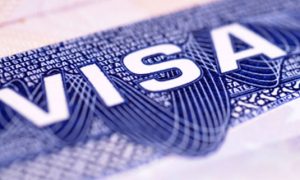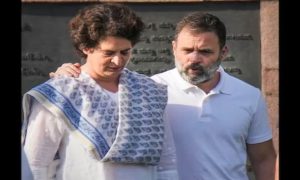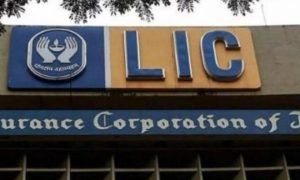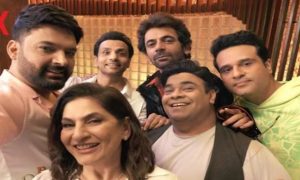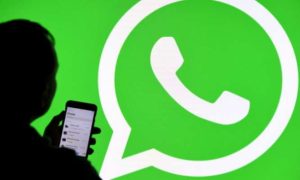Can freebies be defined? Where does one draw the line between welfare schemes and freebies? To what extent should the judiciary step into a subject that falls under the scope of legislature? We speak to experts to get answers to these complex questions.
‘Revdi’, an innocuous sweet popular among Indians, has lately turned into political chatter. The discussion began with Prime Minister Narendra Modi’s comment at a public address on July 16 that attempts were being made to gain votes by distributing ‘free revdis’.
“This revdi culture is very dangerous for the development of the country,” PM Modi said. The prime minister used the term ‘revdi’ as a metaphor to imply that political parties dole out freebies and subsidies to bribe voters, so as to sway votes in their favour. The target, of course, was the Aam Aadmi Party of Arvind Kejriwal which recently won Punjab after Delhi, and has now set sight on Gujarat and Himachal Pradesh.
With the Supreme Court stepping into the ‘freebies’ debate, the issue has snowballed into something beyond plain politics. The questions before a bench comprising Chief Justice of India NV Ramana, Justices Krishna Murari and Hima Kohli are these: Does promising freebies amount to bribing voters? Are all freebies wasteful, or can some be considered social welfare scheme? What kind of election promises amount to inefficient utilisation of public funds? And who decides whether a political party is using funds for a public purpose?
Freebies or not – Can one draw the line?
FinancialExpress.com spoke to several experts to understand if freebies can be defined, where to draw the line between welfare schemes and freebies, and whether the judiciary should step into a subject that falls under the scope of legislature, and, if so, to what extent.
Senior Supreme Court advocate Sanjay Hedge says it is not easy to define a freebie, and that there is no yardstick to distinguish what a good or a bad freebie may constitute.
“If school-going girls get free bicycles, for instance, there are several fiscal and social benefits which justify this measure. There are no judicially manageable standards for distinguishing between good freebies and bad freebies. In any event, expenditure from the public purse, is the prerogative of the executive. The courts, to my mind, can only nudge the debate, but cannot decide it,” Hedge told FinancialExpress.com.
Some constitutional experts, however, stress upon the need for a national policy on social welfare schemes, as it cannot be left entirely to the states since the tax-payers’ money is at stake.
“There must be uniformity in procedure, and if there is uniformity, it insulates people from arbitrary action,” senior advocate and former Patna High Court judge Anjana Prakash told FinancialExpress.com.
“Let’s say, a political party is building a statue, or a place of worship, or flags, is that a freebie, have you taken the consensus of the general public, and how is the tax-payers’ money being spent? There must be a public voice guiding such issues. You can’t really build anything, and not be answerable. There must be some accountability,” she said.
On the question of whether Supreme Court can look into an issue that the Constitution says is a State subject, Prakash says, “How much the Supreme Court would go into it, that is the question, whether or not, is not the question.”
Political dividend of ‘Revdi’ culture
Political experts, however, are divided on whether the promise of freebies can help a party win elections. “Educated people would want to believe that the poor and the illiterate don’t understand elections. But, that is not the case, and the intelligence of voters must not be undermined, whatever background one comes from,” political analyst and columnist Amitabh Tiwari told FinancialExpress.com.
“Had there been a correlation between voters’ decision and freebies, the Congress party, which had promised major sops in Uttar Pradesh (2022 Assembly elections), would have gotten 200 seats, as it was promising scooters, and many other things. The freebie culture started with Tamil Nadu, if there was a correlation, the government would not have had changed there every five years. Freebies have no electoral impact,” Tiwari asserts, adding that the debate ahead of Lok Sabha elections in 2024 is linked to the Aam Aadmi Party (AAP) gaining ground.
Author and political commentator Rasheed Kidwai believes that freebies affect the economy in a significant way. “Freebies… although it started with basic things, later took the form of extravagance, as laptops, mobile phones, are not basic things or essentials, and cost the economy,” Kidwai said.
“Where a beneficiary has not worked for it, or has earned it, that becomes a freebie. MNREGA, Midday, all these are freebies. After so many years of independence, the dependency model should have reduced, as has happened in so many western countries. Their dependence on the government is greatly reduced because there are market forces and human enterprise that is governing the whole thing,” Kidwai added.
How ‘freebies’ landed in Supreme Court
The Prime Minister’s July 16 address suggested that freebies hamper a nation’s development. This led to a political slugfest with the BJP accusing Delhi Chief Minister Arvind Kejriwal of using “freebies” to get votes. However, CM Kejriwal asserted that free education and healthcare are not freebies, and access to these services can make India rich, and the nation’s poverty can be eliminated in a generation.
His comments brought to the fore at the Supreme Court a Public Interest Litigation (PIL) filed by BJP leader and advocate Ashwini Kumar Upadhyay on January 22, where he argued that the promise of freebies unfairly influences voters, and amounts to bribery, and undue influence.
The petition also urges courts to direct the Election Commission of India (ECI) to add a condition to the Election Symbols Order, 1968, that would bar political parties from promising or distributing ‘irrational freebies from public funds before elections’, and further “de-register parties” that distribute freebies.
Meanwhile, the AAP filed a petition before the SC, opposing Upadhyay’s PIL. The party argued that free water, electricity or free public transport are not freebies. Tamil Nadu’s ruling Dravida Munnetra Kazhagam (DMK), and Andhra Pradesh’s ruling YSR Congress also filed an affidavit in the Supreme Court on August 18, asking to join the proceedings in the freebies case.
On April 10, the ECI, filed an affidavit refusing to regulate the practice of freebies, saying that distributing or offering freebies was a policy decision, and that it would be overreaching its powers, if it regulated the practice. It also insisted that it was the voters’ duty to assess the freebies’ financial viability and its effect on the economy.
On August 11, the Supreme Court bench comprising Chief Justice N V Ramana and Justice Krishna Murari said that freebies and social welfare schemes are two different things, and that a balance has to be struck between the economy losing money and welfare measures. It further refused to consider a plea to de-recognise parties for making promises to give freebies, terming it an “undemocratic idea”.














